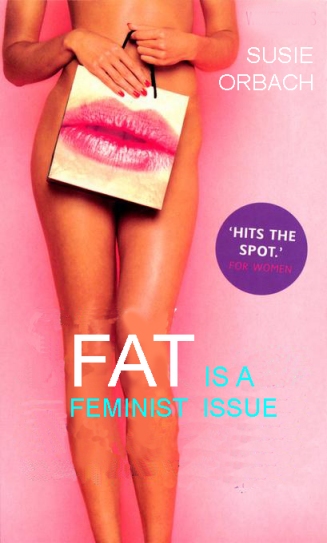I’ve been thinking a lot about Antonio Gramsci lately. Hey, a guy’s got to have a hobby. If it makes you feel better, I’ve also been thinking about Britain’s Got Talent, where to find the last gold bricks on the Lego Harry Potter game and Beyonce’s nipple tassles, but will perhaps return to those another day.
In his Prison Notebooks, Gramsci analysed the history of the Risorgimento, the resurgence of the 19th Century which resulted in Italian unification under a capitalist model then, just a few decades later, the ascent of the very Fascists who had imprisoned him. He noted that there was a strata of society he called organic intellectuals who performed a different function to the intelligentsia of academics and theorists. His example was the victorious faction within the Risorgimento called the Moderate Party, who served capitalism through a period of crisis and transition, by acting as its agents and deputies in organising the dominant hegemony – the prevailing cultural values that protect the economic status quo by shaping popular perceptions of what is “normal”, “inevitable” or “common sense” (the status quo) and what isn’t (any meaningful challenge to the status quo.)
These organic intellectuals were what we would now call progressives or liberals, speaking the rhetoric of concern and reform. They would wrongly think of themselves as being just like ordinary people. the representatives of the masses, even the voice of the masses, and this was crucial to their role. Genuinely believing they were doing the right thing, they would stifle and quash less privileged voices, preventing the emergence of alternative intellectual input from the ‘people-nation.’ (Gramsci famously believed that everyone is or can be an intellectual, whether one knows it or not.)
Organic intellectuals were genuinely well-intentioned, considering it an act of worthy charity to speak on behalf of the less eloquent and less privileged. They were not only intellectuals, they were political organisers, but drawn from a very narrow social demographic. They would be company bosses, rich farmers or entrepreneurs – “a real organic vanguard of the upper classes to which economically they belonged.” Their influence was not directly upon the working classes, but upon their liberal admirers in the bourgeoisie, including teachers, writers and creators of popular culture who distribute the messages to the masses in turn.
Why the sudden interest in mid-period Marxist political theory Ally, I hear you ask? Well, back in the late 1920s, Gramsci could not have imagined a purer example of the organic intellectual class than the modern commentariat. In the early, optimistic days of the internet, I naively imagined that unfettered access to new media platforms would threaten the foundations of the organic intellectual. The new world of blogs and social media would shatter the portcullis keeping the hordes from the castle gates, new ideas, new voices would come flooding through. I underestimated the ingenuity of hegemony. Rather than levelling the playing field between the elites and the masses, social media has simply provided whole new mechanisms for keeping the rabble in line.
This morning, Zoe Williams became the latest blue-chip liberal feminist to join the circling of wagons around the poor, oppressed national newspaper columnists and magazine editors. As you probably know, a powerful clique of intersectional feminists and trans activists have installed themselves as the playground bullies of Twitter, stealing the dinner money from delicate souls like Suzanne Moore, Helen Lewis and Caitlin Moran, who have nowhere to turn for support but their hundreds of thousands of followers, their national columns or their extensive circle of similarly prominent friends.
Apologies for the sarcasm, but the reality is that this is not a fair fight. Nor is it a debate about intersectionality, gender or privilege, because there has been very little engagement in those actual issues. What is happening is a concerted effort by the gatekeepers of feminist discourse to marginalise, pathologise and even intimidate into silence their own internal critics.
She who controls the past controls the future, as Orwell didn’t write, and for an example of how this works, see how the Moore-Burchill saga is now being written into history as having begun with Moore’s comments about Brazilian transsexuals, thus erasing her vicious and offensive tweets in response to being politely challenged. This entirely changes the story to one in which the columnist is the victim, rather than the instigator of the affair. Similarly, a passive-aggressive flounce from Twitter can generate waves of sympathy, notably from fellow /sister members of the elite Twitterati, who (understandably) sympathise with the experience of copping a timeline full of flak from angry detractors, and are quick to tweet about how sad it is that so-and-so has been bullied off Twitter to their vast followings.
This is not me taking sides. For what it is worth, I often disagree with the same groups of (mostly) young, angry intersectional feminists, and have had to devote days to fielding abuse, argument and insult when I’ve written something they don’t like. (I copped a sackful for my last blog, for starters.) It also looks to me like some of the anger is excessive and disproportionate or misguided at times. For example, I found the grief aimed at Helen Lewis over a recent New Statesman debate on feminism rather mystifying. That said, we’d be in a sorry state if there weren’t younger, more passionate voices hurling brickbats at the establishment in frustration at the world. If a few are ill-aimed, that is a small price to pay to avoid reactionary stasis.
It is more important to recognise when the anger and disagreement is coming from a place of good faith. It is perfectly reasonable to reject criticism, perfectly reasonable to block and ignore those who resort to personal abuse and insults, perfectly reasonable to argue back, and perfectly reasonable to quietly turn off Twitter for a break (indeed it is actively recommended.) I don’t think it is reasonable to use one’s disproportionate profile and platforms to portray one’s critics as bullies or trolls, thereby absolving oneself of any obligation to engage with them.
Zoe Williams ends her article with something of a volte face, acknowledging the need for intersectional approaches and recognising reasons to challenge transphobia. But not before she has added to the celestial chorus of voices from above that have portrayed intersectional critics as a feral, irrational mob of bullies.
For all the talk of intersectionality, privilege, oppression and assorted other post-structural jargon, I can’t help feeling there are more established ways of understanding the dynamics at play. Organic intellectuals have a collective, mutual interest in maintaining their own stranglehold over culture, discourse and language, which sustains their position near the top of the status pyramid. The collective outrage from much of the liberal-left over recent twitterstorms is, I think, not really about angry disagreement with the points being made and not really about personal abuse and insult. It mostly strikes me as a media elite showing collective affront at being challenged on their inalienable right to set the terms and limits of debate and discourse. What I find most discomfiting in all of this is the tendency of the commentariat to rush to each others’ defence on social media or in their national newspaper columns. If that is not the behaviour of a privileged elite closing ranks, it sure as hell looks like it.
Gramsci, smart old cookie that he was, anticipated all of this and even provided a solution for those who would presume to represent the downtrodden, the oppressed and the marginalised.
“If the relations between intellectuals and the people-nation, between leaders and led, is the result of an organic participation in which feelings and passion become understanding and thence knowledge… then and only then is the relation one of representation.”
Twitter, Facebook, online commenting and blogs have offered us an unprecedented opportunities for organic participation, in which feelings and passion can become understanding. When one withdraws from engagement, when one marginalises and diminishes one’s critics, and when one loses faith in the honesty of critics on our own side, then one loses the right to represent those critics.
That’s a hell of a price to pay for a placid timeline.
Note: Gramsci’s Prison Notebooks are available as a free PDF. So too is Roger Simon’s excellent reader Gramsci’s Political Thought
Note on the title, for anyone not Scottish and of a certain age. I grew up listening to this song, and have been waiting for an opportunity to use this joke for about 20 years)







